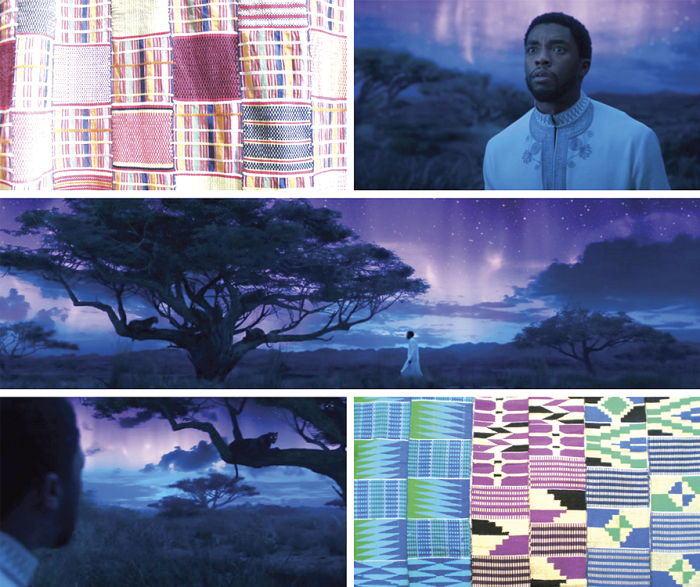
Folklore, the dollar spinner we didn’t know
Before you read on, please take a pen and paper. List Ghana’s income sources. I can bet that your first 10 sources will not include “folklore”.
Don’t feel bad. You are not alone. For some 90 per cent of Ghanaians, including even some operators in the cultural space, the word ‘folklore’ is synonymous with proverbs, anansesem and other folktales. No wonder, we look everywhere for money but never from folklore.
Advertisement
Yet, did you know the following?
In 1990, the American musician Paul Simon released an album called ‘Rhythm of the Saints’. The album included a song titled ‘Spirit Voices’, which is based on a Ghanaian folk song titled ‘Yaa Amponsah’, first recorded in 1928.’ To determine the origins of ‘Yaa Amponsah’, Simon contacted the Copyright Administration Office in Accra.
The result is that Paul Simon paid an initial royalty sum of US$16,000 to the Ghana’s Copyright Administration. Since then, the song has brought in a total of over $80,000 in royalties for the government of Ghana.
Unfortunately, the 1985 Copyright Law under which ‘Spirit Voices’ was assessed, applied only to “works imported into or sold in Ghana”. This explains why the royalties from that album are a mere US$80,000 over 19 years. If the law had applied to sales worldwide, or even within the United States, Ghana would have earned much more in royalties.
Around the same time, the Japanese Company JVC released a film on traditional African music and dance. For these, they paid approximately $2,000 in royalties to Ghana.
This is folklore. The laws of Ghana define it as the “literary, artistic and scientific expressions belonging to the cultural heritage of Ghana which are created, preserved and developed by ethnic communities of Ghana or by an unidentified Ghanaian author ...”
It includes music, dance, art, designs (e.g. kente and Adinkra designs), performances, architectural forms, handicrafts, musical expressions such as folk songs and instrumental music.
Indeed, the National Folklore Board insists that folklore includes - and therefore Ghana can earn money from - the TZ meal of the hausa people, the ‘agbadza’ rhythms of the Ewes, the ‘meda’ of the Gas and the akwasidae festival of the Asantes.
Nor is folklore important only because it is a money spinner. Nana Ama Asante, Director of the Folklore Board, thinks that “In an era of globalisation and with the blinding influences from western Europe and North America, there is the need to create and improve the bond we as young ones feel towards our kpalogo dance, our alata samina, our atumpan drums, our waakye, our adowa, our ԑto and our mpotompoto.”

Kente features prominently in the movie, 'Black-Panther'
The article’s emphasis, however, is on folklore’s potential as a dollar-spinner.
In 2002, two foreign musicians, Michel Sanchez and Eriq Mouquet, combined ethnomusicological recordings from Ghana, the Solomon Islands, and African pygmies with techno music for their album, titled, ‘Deep Forest’. The album sold over two million copies and was used in commercials for Coca-Cola, Porsche, Neutrogena, and the Body Shop. Since Michel and Sanchez were the first to record the music and fix it in a tangible form they received the copyright for the music. None of the contributing musicians from Ghana, the Solomon Islands, nor the African Pygmies shared in the resulting profits.
It used to be a challenge for commercial users of folklore determining which songs, foods and symbols are part of the national folklore. A solution to this challenge was proffered by the World Intellectual Property Organization which has advised member-states to conduct national, regional, and international surveys in order to build their own folklore inventories and to archive folklore expressed in tangible forms for long term preservation.
In Ghana, folklore is vested in the President on behalf of the people. The National Folklore Board, an agency under the Ministry of Tourism, Arts and Culture, is mandated by law to exercise the ownership rights to folklore on behalf of the President. The Board is responsible for the registration and protection of folklore and levying of fees for the use of folklore outside the authorized scope.
A major challenge to the Board, currently, is the misappropriation and commercialization of folklore by international organizations without paying compensation.
While companies such as Vodafone and the Ghana Stock Exchange are faithfully paying royalties to the Republic of Ghana for using adinkra symbols in their corporate logos, the board’s major challenge currently is the misappropriation and commercialization of folklore by international organizations without paying compensation.
There is, for instance, the alleged sale of ahenema sandals for over US$1,000 by a popular Italian fashion brand; the sale of “Ghana Must Go” bags with Kente and Adinkra designs by the famous fashion design brand, Louis Vuitton; Adinkra symbols being used by fashion designers and brands such as Aldo, Stella McCartney and Adidas. These products are sold at luxurious prices without even one pesewa in compensation to Ghana.
In the famous ‘Black Panther’ movie, Ghana’s kente is generously used. Not a pesewa has come to us so far from this movie, described by Wikipedia as the world's ninth-highest-grossing film of all time, with a a worldwide box office total of US$1,346,000,000.
What Folklore Board, under the guidance of the Ministry of Tourism, Arts and Culture and with the advice of the Attorney General, is doing currently, is locating a reputable international law firm to pursue Ghana’s interest in the matter.
Folklore, also, can pay



